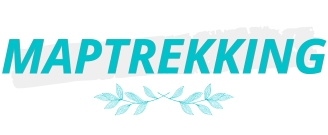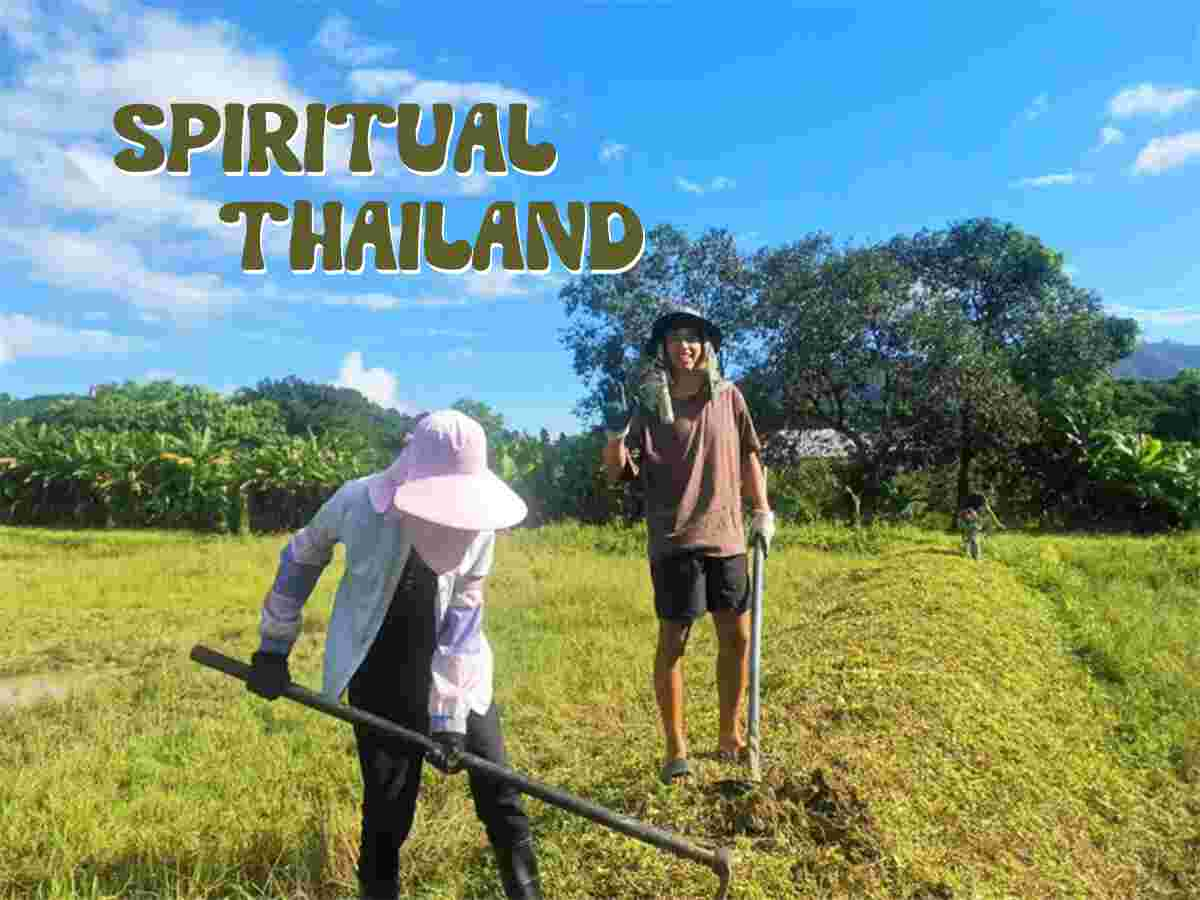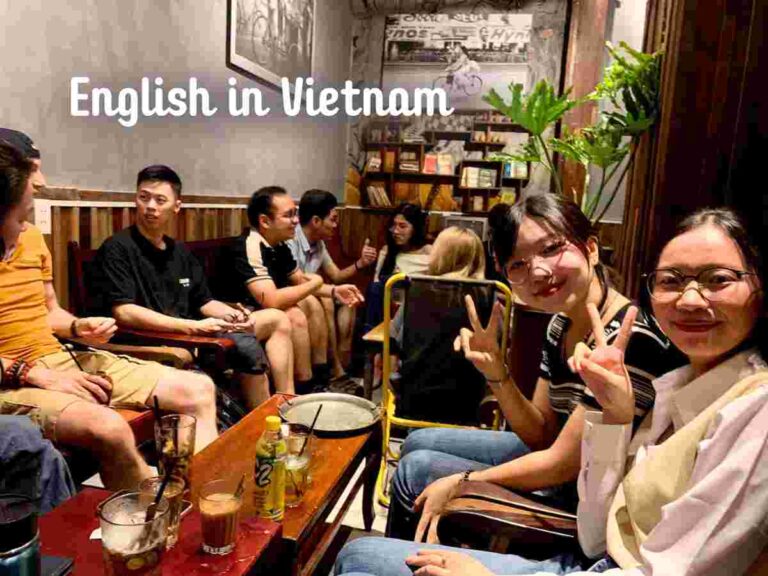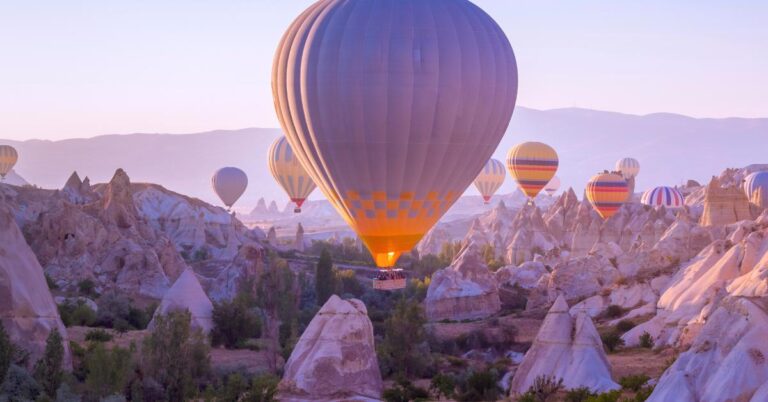Want to experience a Thai work exchange? Start eco village volunteering in Chang Mai Thailand! Check out all the details here:
Overview
- Location – Chiang Mai
- Host – Jie
- Duration: 1 day
- Minimum Age – 18+
- Available Spots – 2 helpers
- Weekly Hours – 14 hours
- Room Type – Single Private
- Meals – Full-board
- Nearest Airport – Mae Fah Luang International Airport (CEI)
Lifechanyuan is a unique community dedicated to creating a new way of living, different from traditional lifestyles. Welcome to the Lifechanyuan International Family Thailand Branch! Located in a peaceful and beautiful ecovillage supported by the local temple, this community is about 180 km from Chiang Mai city and 80 km from Chiang Rai city.
Established in September 2020, the ecovillage is home to 12 members who live together, aiming to create and build a new lifestyle model for those who are kind, diligent, simple, honest, and trustworthy, and who wish to contribute to human peace and the sustainable development of the world.
The community is set in a beautiful natural environment with distant mountains shrouded in clouds and mists. Melodious birdsong fills the air, and flowers bloom under the sunshine.
The fields are lush with neatly planted organic vegetables, and ducks play happily in the river while buffalos and horses graze leisurely on the grassland. The people living here are diligent, kind, happy, and civilized, sharing jokes and laughter every day, creating a paradise filled with love and auspiciousness.
The Thailand branch spans 80 acres and includes residential areas, a public kitchen, activity halls, pavilions, grassland, woodlands, vegetable and flower gardens, orchards, banana forests, rivers, and small lakes.
In addition to the community members, there are also some neighbors living in the courtyard, and everyone helps and gets along harmoniously.
People from all over the world are welcome, regardless of background, race, religion, culture, or nationality. If you’re interested in this new lifestyle, you’re invited to visit, experience this happy and simple life, and help create, improve, and perfect this new lifestyle model for kind and lovely people everywhere. A happy and unforgettable stay awaits.
Tasks
Visitors are expected to work no less than two hours a day on activities such as planting, weeding, gardening, cleaning, or laundry.
Accommodation
Rooms or tents are available, with hot water showers, sinks, and toilets conveniently accessible. Alternatively, visitors can bring their own tents, as there is ample space for camping.
- Comfortable and clean tents, a shower, sink, and toilet.
- Two meals are served each day at 7:30 am and 4:00 pm, mostly vegetarian, with occasional meat. Food and snacks are available in the kitchen at noon.
- Laundry service is provided, except for socks, undergarments, and towels.
- Working gloves and hats are available if needed.
- Daily necessities can be provided upon request.
- Community activities include sharing Lifechanyuan values, introducing the New Life Mode, and various entertainment activities.
Location
There are direct buses from Chiang Mai or Bangkok to Tha Ton daily. From Chiang Mai, you can take a bus from the Chang Phueak Bus Terminal, which takes about 4 hours.
From Bangkok, a bus from the Mochit Bus Terminal takes about 12 hours. While there are no direct buses from Chiang Rai, local vans can take you to Fang, from where you can catch a minibus to the ecovillage.
Chiang Mai is a city that seamlessly blends rich cultural heritage with a laid-back atmosphere, making it a must-visit destination in Thailand. Nestled in the mountainous region of northern Thailand, Chiang Mai offers a unique contrast to the hustle and bustle of Bangkok. Here, ancient temples stand alongside trendy cafes, and lush nature is just a short drive away.
The Old City of Chiang Mai is a great place to start exploring. Surrounded by remnants of ancient walls and a moat, the Old City is home to some of the city’s most famous temples, such as Wat Phra Singh and Wat Chedi Luang.
The temples are not only beautiful but also offer insight into the city’s deep-rooted spiritual traditions. The Sunday Night Market on Ratchadamnoen Road is a vibrant place to experience local crafts, street food, and live performances.
Just outside the city, Doi Suthep is a must-see. The mountain is home to Wat Phra That Doi Suthep, one of Thailand’s most revered temples, which offers breathtaking views of the city below.
The hike or drive up is rewarding, and the golden stupa at the temple’s center is stunning. For nature lovers, the surrounding Doi Suthep-Pui National Park offers trails, waterfalls, and lush greenery.
Chiang Mai is also a gateway to the countryside, where you can experience rural Thai life. You can visit elephant sanctuaries that focus on ethical treatment, where you can learn about and interact with these gentle giants.
If you’re interested in Thai cuisine, Chiang Mai is renowned for its cooking schools, where you can learn to prepare traditional dishes like Khao Soi, a delicious coconut curry noodle soup that is a local specialty.
For a bit of adventure, the surrounding area offers plenty of opportunities for trekking, zip-lining, and exploring hill tribe villages. You can take a day trip to the nearby town of Pai, known for its relaxed vibe and scenic landscapes, or explore the Chiang Rai region to see the famous White Temple.
Chiang Mai’s weather is relatively cooler than much of Thailand, especially from November to February, making it a great time to visit. If you’re there in April, brace yourself for the Songkran festival, Thailand’s famous water festival, where the entire city turns into a giant water fight.
Whether you’re looking for cultural immersion, outdoor adventure, or just a place to relax and unwind, Chiang Mai offers something for everyone.
More Information
- Visitors can stay for up to seven days.
- Physical and mental health is required.
- Smoking, drinking, and drug use are prohibited.
- Inform the community of any allergies or dietary restrictions in advance.
- A full-time chef prepares meals, and everyone eats in the public dining room. Food should not be wasted, and plates should be finished.
- Keep bedrooms or tents clean and tidy, and make the bed when not in use.
- Quiet hours are from 12:00 pm to 2:00 pm and from 9:30 pm to 7:00 am, as these are resting and sleeping times.
- Visitors are responsible for their own health and safety.
- Working time is voluntary, based on individual conditions, and visitors are not required to work as the community members do.
As the community is not yet profitable, it relies on donations from members. Donations from visitors, based on their experiences, are appreciated and contribute to the construction of Lifechanyuan International Family.




